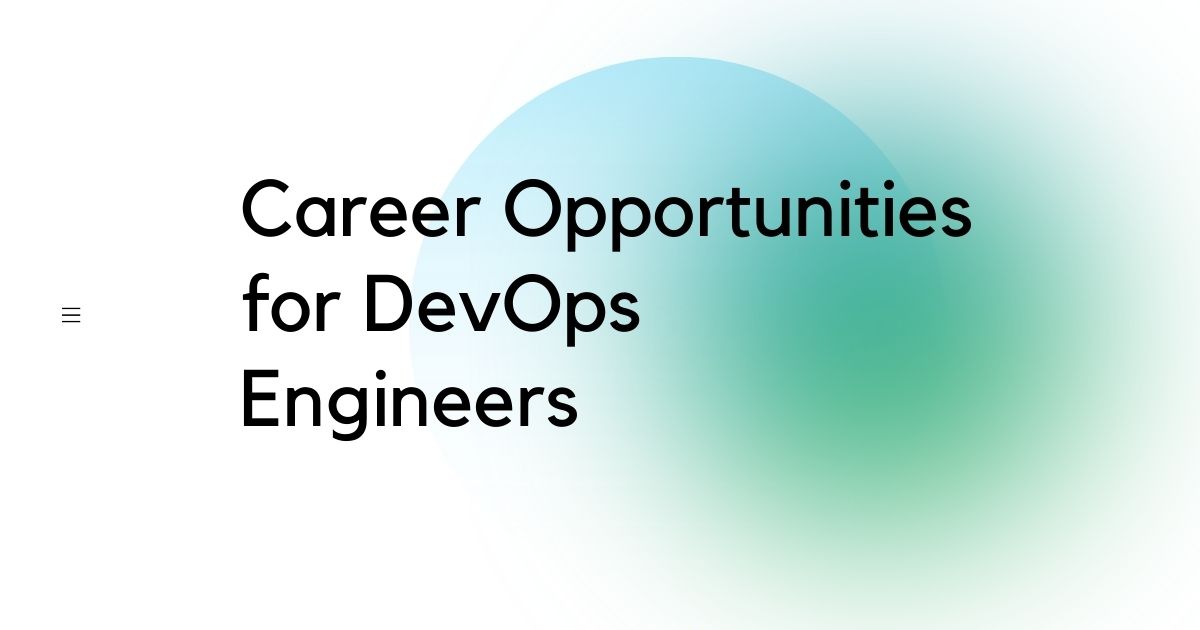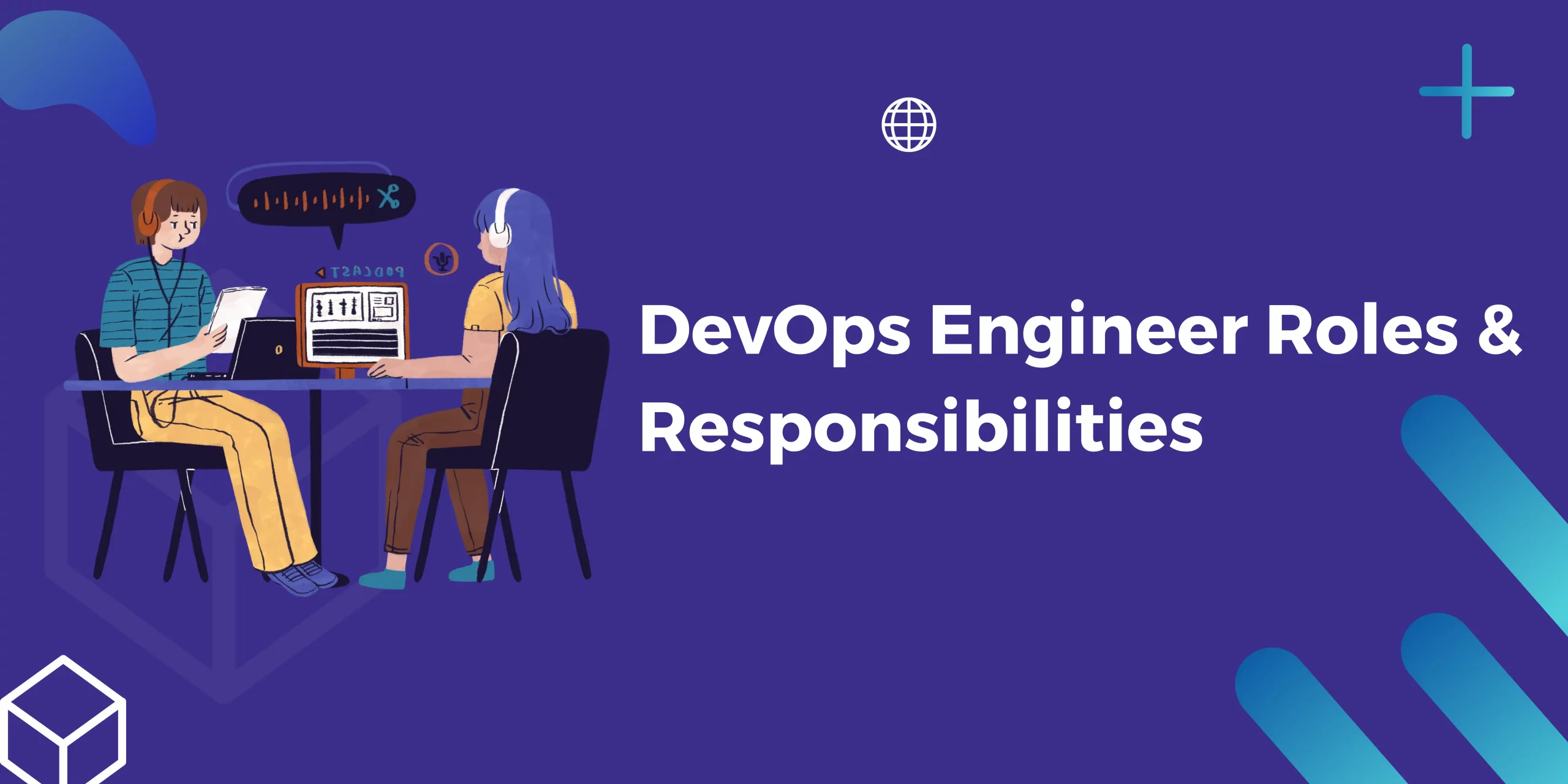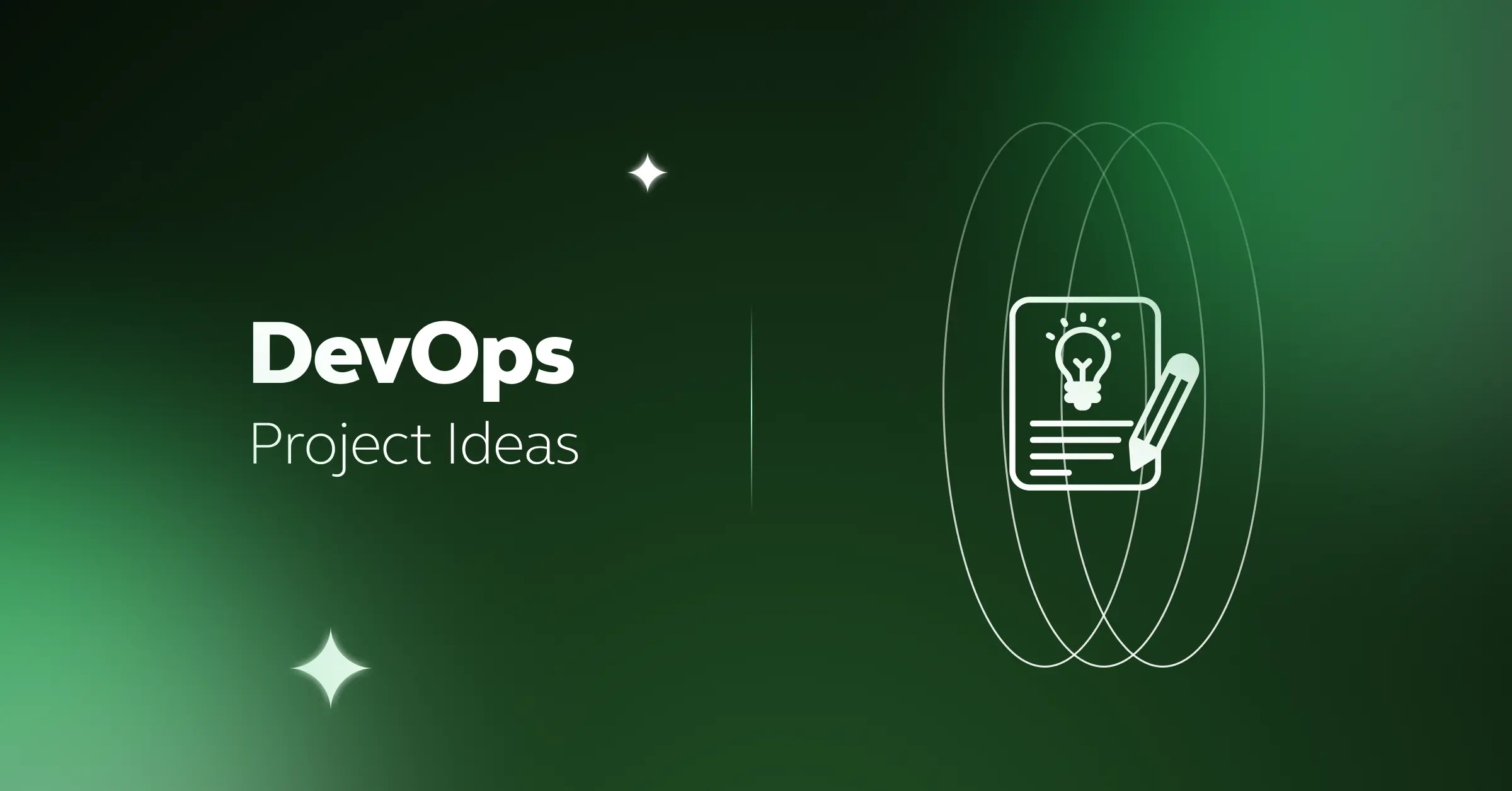
Top 9 Career Opportunities for DevOps Engineers in India
Jul 19, 2025 7 Min Read 4651 Views
(Last Updated)
DevOps has become one of the most sought-after skill sets in today’s tech job market, driven by the need for faster releases, stronger system reliability, and seamless collaboration between development and operations.
Companies are actively hiring professionals who can build efficient CI/CD pipelines, automate infrastructure, and manage modern cloud-native environments. DevOps engineers play a central role in how modern software is developed, tested, deployed, and scaled, bridging speed with stability.
This role comes with strong advantages:
- Competitive salaries averaging ₹9–12 LPA, with senior roles going beyond ₹30–60 LPA
- High hiring demand from top tech companies like Amazon, Infosys, Google, and TCS
- Career flexibility across roles such as SRE, Cloud Engineer, Automation Architect, and DevSecOps Specialist
The market reflects this demand:
The global DevOps market is projected to grow from $13.29 billion in 2024 to $108.26 billion by 2035 (CAGR of 21.01%).
In India, 83% of IT leaders have already adopted DevOps, and 99% report tangible business outcomes.
For anyone exploring fast-growing careers, DevOps offers clear growth, global relevance, and strong cross-functional impact. This blog takes you through the top 9 Career Opportunities for DevOps Engineers in India, along with the skills, tools, and learning paths that can take you there.
Table of contents
- Top 9 Career Opportunities for DevOps Engineers in India
- 1) DevOps Engineer
- Key Responsibilities:
- In-Demand Skills:
- Career Outlook in India:
- 2) Site Reliability Engineer (SRE)
- Key Responsibilities:
- In-Demand Skills:
- Career Outlook in India:
- 3) Security Engineer (DevSecOps)
- Key Responsibilities:
- In-Demand Skills:
- Career Outlook in India:
- 4) Release Manager
- Key Responsibilities:
- In-Demand Skills:
- Career Outlook in India:
- 5) Cloud Engineer
- Key Responsibilities:
- In-Demand Skills:
- Career Outlook in India:
- 6) Automation Architect
- Key Responsibilities:
- In-Demand Skills:
- Career Outlook in India:
- 7) Integration Specialist
- Key Responsibilities:
- In-Demand Skills:
- Career Outlook in India:
- 8) Infrastructure Engineer
- Key Responsibilities:
- Must-Have Skills:
- Career Outlook in India:
- 9) Build Engineer
- Key Responsibilities:
- Must-Have Skills:
- Career Outlook in India:
- Where DevOps Meets Data Engineering: A Career Advantage
- Conclusion
- Frequently Asked Questions
- What skills do I need to succeed in a DevOps career?
- Do I need a DevOps certification to start my career?
- How much can a DevOps engineer earn in India?
- Can I switch to a DevOps role from a traditional IT job?
- What industries hire DevOps engineers?
- Which tools should I learn for a DevOps career?
- How do I start my DevOps career if I have no experience?
Top 9 Career Opportunities for DevOps Engineers in India
1) DevOps Engineer

A DevOps Engineer plays a critical role in modern software teams by streamlining how applications are built, tested, released, and maintained. This role combines technical depth with systems thinking, allowing organizations to deliver faster, safer, and more scalable software.
Key Responsibilities:
- Automate CI/CD Pipelines: Use tools like Jenkins, GitHub Actions, or GitLab CI to automate build, test, and deployment workflows.
- Implement Infrastructure as Code (IaC): Manage cloud infrastructure at scale using tools like Terraform, AWS CloudFormation, or Ansible.
- Enhance Collaboration: Act as the bridge between development, QA, and IT operations, reducing silos and accelerating delivery.
- Optimize System Reliability: Use monitoring tools like Prometheus, Datadog, or ELK Stack to detect, resolve, and prevent issues before users are impacted.
- Containerize and Orchestrate: Leverage Docker and Kubernetes to build, deploy, and scale applications in modern environments.
In-Demand Skills:
- Cloud Platforms: AWS, Azure, or Google Cloud Platform (GCP)
- Scripting Languages: Python, Shell (Bash), or PowerShell
- DevOps Tools: Jenkins, Git, Docker, Kubernetes, Ansible, Prometheus
Career Outlook in India:
In 2025, the DevOps Engineer role ranks among the top tech jobs in India. Professionals in this role earn an average salary of ₹9 LPA, with senior experts earning upwards of ₹60 LPA in companies like Infosys, TCS, Cognizant, Amazon, and Flipkart.
2) Site Reliability Engineer (SRE)

A Site Reliability Engineer (SRE) ensures that software systems stay fast, stable, and available, even at scale. It’s a role that blends software engineering principles with an operations mindset to build resilient infrastructure and maintain performance under pressure.
Key Responsibilities:
- Define and Maintain SLOs: Set Service Level Objectives and manage Error Budgets to balance speed and reliability.
- Automate Reliability Tasks: Use scripting and automation tools to reduce repetitive operational work.
- Monitor System Health: Leverage tools like Prometheus, Grafana, or New Relic to detect issues early and resolve them proactively.
- Plan for Capacity and Load: Design for high traffic and ensure systems can scale seamlessly without downtime.
- Embed Resilience into Architecture: Work with developers to build failover systems, retries, and self-healing mechanisms into core applications.
In-Demand Skills:
- Monitoring & Observability: Prometheus, Grafana, ELK Stack
- Incident Management: Root cause analysis, alerting systems, on-call rotations
- Infrastructure Automation: Terraform, Kubernetes, Bash, Python
- Cloud Platforms: GCP (preferred by Google SREs), AWS, Azure
Career Outlook in India:
In 2025, Site Reliability Engineers are among the most sought-after specialists in India’s DevOps hiring market. Top companies like Google, Amazon, Flipkart, and LinkedIn actively recruit SREs to ensure high availability and seamless user experience.
SRE salaries start at ₹12–13 LPA, with experienced professionals earning ₹40 LPA+ depending on skills, certifications, and project exposure.
3) Security Engineer (DevSecOps)

A Security Engineer in DevSecOps ensures that security is integrated into every stage of software development and delivery. As cyber threats rise in 2025, this role has become critical across industries that deal with sensitive user data, cloud infrastructure, and large-scale digital services.
Key Responsibilities:
- Embed Security in CI/CD Pipelines: Automate vulnerability scans, penetration testing, and compliance checks as part of the deployment process.
- Threat Modeling & Risk Assessment: Identify potential vulnerabilities early and prioritize them based on impact and likelihood.
- Incident Response & Monitoring: Detect and respond to threats using tools like Splunk, Wireshark, and OSSEC.
- Promote Secure Coding Practices: Collaborate with developers to prevent common vulnerabilities like XSS, SQL injection, and misconfigurations.
- Security as Code: Write scripts and infrastructure policies that enforce security standards programmatically.
In-Demand Skills:
- DevSecOps Tools: SonarQube, Checkmarx, Aqua Security, Vault by HashiCorp
- Cloud Security: IAM, VPC setups, key management (AWS/GCP/Azure)
- Network Security: Firewalls, IDS/IPS systems, SSL/TLS configurations
- Compliance Knowledge: GDPR, HIPAA, ISO/IEC 27001
Career Outlook in India:
Security Engineers are now a core part of any DevOps team. Companies like Accenture, Deloitte, TCS, and Infosys are actively hiring DevSecOps professionals to strengthen cloud and application security.
Entry-level salaries start at ₹10–12 LPA, while professionals with certifications (like CEH, CISSP, or AWS Security Specialty) and hands-on DevSecOps experience can earn up to ₹30 LPA+.
4) Release Manager
A Release Manager plays a mission-critical role in ensuring that every software update reaches production without disruption. In today’s fast-paced DevOps environment, where frequent deployments are the norm, release managers bring order, coordination, and stability to the release lifecycle.
Key Responsibilities:
- Plan and Coordinate Releases: Manage timelines, resources, and stakeholder communication across development, QA, and operations.
- Automate Deployment Workflows: Use tools like JIRA, Git, Jenkins, and Azure DevOps to track and streamline release activities.
- Mitigate Downtime and Risks: Implement rollback plans, canary deployments, and post-release audits to maintain high availability.
- Ensure Cross-Team Alignment: Serve as the communication bridge between business, product, and technical teams during release cycles.
- Track Release Metrics: Monitor release frequency, lead time, and failure rates to continuously improve delivery pipelines.
In-Demand Skills:
- CI/CD Integration: Jenkins, GitHub Actions, CircleCI, GitLab
- Project Management: Agile/Scrum practices, sprint planning, JIRA workflows
- Risk Management & QA Coordination
- Strong Communication & Stakeholder Management
Career Outlook in India:
With companies scaling agile development and increasing release velocity, the demand for Release Managers is growing across industries. Organizations like HCL, Tech Mahindra, Capgemini, and Cognizant frequently hire for this role.
Entry-level packages start at ₹12–13 LPA, and experienced professionals with strong DevOps and project management expertise can command ₹25 LPA+.
5) Cloud Engineer

A Cloud Engineer plays a foundational role in modern DevOps teams, enabling scalable, secure, and highly available infrastructure through cloud platforms like AWS, Microsoft Azure, and Google Cloud Platform (GCP).
As businesses continue to modernize their tech stack and migrate services to the cloud, the demand for skilled cloud engineers is only rising.
Key Responsibilities:
- Design & Deploy Cloud Infrastructure: Architect and implement cloud-native systems for performance, scalability, and availability.
- Automate Infrastructure Management: Use tools like Terraform, Ansible, and CloudFormation to enable Infrastructure as Code (IaC).
- Ensure Cloud Security: Collaborate with DevSecOps and security teams to enforce access controls, encryption, and compliance standards.
- Optimize Cost & Performance: Monitor usage and fine-tune resources to avoid wastage and improve system responsiveness.
- Cloud Monitoring & Troubleshooting: Use tools such as AWS CloudWatch, Azure Monitor, and Datadog to proactively detect and resolve system issues.
In-Demand Skills:
Career Outlook in India:
- Proficiency in Cloud Platforms: AWS, Azure, GCP
- IaC & Automation: Terraform, Ansible, CloudFormation
- Containerization & Orchestration: Docker, Kubernetes
- Security & Compliance: IAM, firewalls, encryption standards
- Monitoring & Optimization
Cloud Engineers are among the most in-demand professionals across industries, including finance, healthcare, and IT services. Top companies like Amazon, Oracle, Infosys, and Microsoft are actively hiring.
In India, the average salary stands at ₹10.9 LPA, with experienced professionals and certified cloud architects earning ₹20–35 LPA.
6) Automation Architect
An Automation Architect is a strategic role in the DevOps ecosystem, responsible for designing robust automation frameworks that streamline the entire software development lifecycle—from code integration and testing to deployment and monitoring.
By eliminating manual interventions, Automation Architects help teams achieve faster release cycles, higher reliability, and cost-efficient operations.
Key Responsibilities:
- Design Enterprise-Scale Automation: Build end-to-end automation strategies for CI/CD, infrastructure provisioning, and QA pipelines.
- Implement Configuration Management Tools: Use technologies like Ansible, Puppet, Chef, and SaltStack for system configuration and deployment automation.
- Integrate with CI/CD Pipelines: Automate testing, deployment, and rollback mechanisms to ensure smooth releases.
- Collaborate Across Teams: Identify automation opportunities across development, DevOps, QA, and security functions.
- Align with Business Objectives: Ensure all automation practices directly support performance, scalability, and cost goals.
In-Demand Skills:
- Scripting Languages: Python, Bash, Groovy
- Infrastructure as Code: Ansible, Terraform, Chef
- DevOps Tools: Jenkins, GitLab CI, Spinnaker
- Cloud Environments: AWS, Azure, GCP
- Monitoring & Testing Integration
Career Outlook in India:
As companies increasingly adopt DevOps at scale, Automation Architects are essential for enterprise-level transformation. Firms like Amazon, IBM, Infosys, and TCS actively recruit for this role.
In India, starting salaries begin at ₹20 LPA, often reaching ₹35–50 LPA for professionals with multi-cloud automation experience and deep knowledge of DevOps toolchains.
7) Integration Specialist
An Integration Specialist ensures seamless collaboration between tools, platforms, APIs, and services across a DevOps ecosystem. In today’s fast-paced development cycles, this role is critical to maintaining efficient workflows, reducing friction, and enabling faster delivery pipelines.
This career opportunity is ideal for DevOps engineers who enjoy optimizing toolchains and solving complex compatibility challenges across environments.
Key Responsibilities:
- Toolchain Integration: Connect DevOps tools like Jenkins, Git, Docker, and Kubernetes for end-to-end automation.
- API Management: Set up, test, and monitor API integrations to ensure consistent data exchange and system communication.
- Middleware & Workflow Design: Use middleware solutions to connect legacy systems with cloud-native apps.
- Troubleshooting & Optimization: Resolve integration issues, reduce downtime, and improve the performance of connected systems.
- Cross-Team Collaboration: Coordinate with development, QA, cloud, and operations teams to maintain a stable, scalable, and cohesive software environment.
In-Demand Skills:
- API & Web Services (REST, SOAP)
- Middleware Technologies (Kafka, RabbitMQ, MuleSoft)
- CI/CD Tools & Version Control
- Cloud Integration (AWS Lambda, Azure Logic Apps)
- Scripting Knowledge (Python, Shell)
Career Outlook in India:
As microservices and hybrid cloud architectures dominate modern DevOps setups, Integration Specialists are in high demand. Companies like IBM, Cognizant, Oracle, and Wipro frequently hire for this role.
In India, salaries start around ₹10.8 LPA, with higher ranges based on system architecture experience and advanced middleware skills.
8) Infrastructure Engineer
An Infrastructure Engineer plays a mission-critical role in ensuring the scalability, security, and stability of systems that power DevOps pipelines. Think of them as the architects of the digital scaffolding, designing and maintaining the servers, networks, and storage systems that DevOps relies on.
As companies continue to scale applications to millions of users, this role becomes vital in enabling high availability, fast performance, and resilient cloud-native environments.
Key Responsibilities:
- Infrastructure-as-Code (IaC): Use tools like Terraform, Puppet, and Ansible to automate the provisioning of infrastructure across cloud and hybrid environments.
- System Monitoring & Optimization: Leverage monitoring tools like Nagios, Zabbix, and Prometheus to ensure optimal performance, uptime, and resource utilization.
- OS & Network Management: Configure and maintain Linux/Unix systems, load balancers, firewalls, and VPNs to ensure secure and uninterrupted service.
- Collaborative Scalability: Partner with DevOps, cloud, and security teams to design infrastructure that supports scalable CI/CD processes and dynamic workloads.
Must-Have Skills:
- OS fundamentals (Linux, Windows Server)
- Networking (TCP/IP, DNS, firewalls, routing)
- IaC tools (Terraform, Ansible, Chef)
- Container orchestration (Docker, Kubernetes)
- Cloud platforms (AWS, Azure, GCP)
Career Outlook in India:
With digital infrastructure forming the base of every DevOps practice, Infrastructure Engineers are actively hired by top firms like HCL, Dell, and Tech Mahindra.
The average salary in India is ₹9 LPA, with experienced professionals moving into Cloud Engineering, Infrastructure Architecture, or SRE roles commanding ₹18–25 LPA and beyond.
9) Build Engineer
A Build Engineer plays a crucial role in DevOps by automating and managing the build lifecycle, from source code integration to test automation, ensuring that every deployment is fast, reliable, and bug-free.
They are the silent enablers of Continuous Integration (CI), working behind the scenes to ensure developers’ code is validated, tested, and ready for production without disruptions.
Key Responsibilities:
- CI Automation: Set up and maintain CI pipelines using tools like Jenkins, TeamCity, and Bamboo.
- Code Integration & Compilation: Automate the compilation of source code, manage dependencies, and validate builds across development branches.
- Scripting & Debugging: Use Python, Shell, or Groovy to troubleshoot build failures, write automation scripts, and improve build performance.
- Environment Consistency: Ensure uniformity across development, staging, and production environments to reduce errors in deployment and QA.
- Collaboration & Conflict Resolution: Work closely with developers to merge code safely and resolve versioning conflicts early.
Must-Have Skills:
- CI/CD tools (Jenkins, TeamCity, Bamboo)
- Scripting (Python, Bash, Groovy)
- Version control systems (Git, SVN)
- Build tools (Maven, Gradle, Ant)
- Debugging and system monitoring
Career Outlook in India:
With every DevOps setup relying on flawless code integration, Build Engineers are indispensable to teams at TCS, Wipro, and Capgemini. Salaries for Build Engineers in India start at ₹6 LPA and can grow significantly with expertise in advanced automation and large-scale CI/CD infrastructure.
Where DevOps Meets Data Engineering: A Career Advantage
DevOps is no longer limited to just CI/CD pipelines or automation tasks. Today’s top DevOps professionals are those who understand how infrastructure, cloud systems, and data engineering work together.
That’s where data engineering becomes a game-changer.
Understanding data pipelines, shell scripting, orchestration, and Infrastructure as Code (IaC) gives you a critical advantage, especially as modern DevOps roles increasingly overlap with analytics, cloud deployment, and real-time monitoring.
Prefer flexibility? You can opt for the self-paced Data Engineering and Big Data course, perfect for working professionals who want to upskill on their own schedule.
These cross-functional capabilities don’t just strengthen your DevOps resume; they unlock hybrid roles that are in high demand and offer higher pay across India’s tech landscape.
Kickstart your career by enrolling in GUVI’s DevOps Course, where you will master technologies including Linux, Git, AWS, etc, and build interesting real-life DevOps projects.
Conclusion
DevOps continues to be one of the most rewarding and future-focused career paths in technology. Whether your goal is to become a DevOps Engineer, Cloud Specialist, or Automation Architect, these roles offer strong opportunities for growth as companies prioritize faster releases, system reliability, and scalable infrastructure.
To thrive in this field, it’s essential to build expertise in automation, infrastructure management, cloud services, and collaborative workflows. As DevOps evolves, professionals who understand both systems and data will have a distinct advantage.
By continuously developing your technical foundation and staying updated with emerging tools and practices, you can position yourself for some of the most impactful roles in today’s tech landscape.
Frequently Asked Questions
Top skills for a DevOps engineer career include CI/CD automation, scripting (Python, Bash), cloud platforms (AWS, Azure, GCP), containerization (Docker, Kubernetes), and a strong understanding of monitoring and security practices.
No, it’s not mandatory. However, certifications like AWS Certified DevOps Engineer or Kubernetes Administrator can showcase your expertise and boost your chances of getting hired by top companies.
The average salary for a DevOps engineer in India is ₹9 lakh per year, with experienced professionals earning upwards of ₹60 lakh depending on their skills and role.
Yes! Many professionals transition to DevOps by acquiring automation, cloud, and CI/CD pipeline skills through online courses, certifications, and real-world projects.
DevOps is widely adopted in IT, e-commerce, financial, telecommunications, and healthcare sectors.
Some helpful tools include Jenkins, Git, Terraform, Docker, Kubernetes, Prometheus, and Ansible.
You can begin by learning the fundamentals through online courses, gaining hands-on experience with projects, and participating in DevOps communities. Certifications can also help you stand out to recruiters.



















![Top High-Paying Non-Coding Jobs in DevOps [2025] 6 Non-Coding Jobs in DevOps](https://www.guvi.in/blog/wp-content/uploads/2023/11/Top-10-Non-Coding-Jobs-in-DevOps.png)

![Top 15+ Jenkins Interview Questions and Answers [2025] 8 jenkins interview questions](https://www.guvi.in/blog/wp-content/uploads/2022/06/wallpapertip_open-source-wallpaper_1780230.jpg)





![30 Important DevOps Interview Questions and Answers [Includes All 3 Levels] 13 DevOps Interview Questions and Answers](https://www.guvi.in/blog/wp-content/uploads/2025/05/30-Important-DevOps-Interview-Questions-and-Answers.png)

Did you enjoy this article?